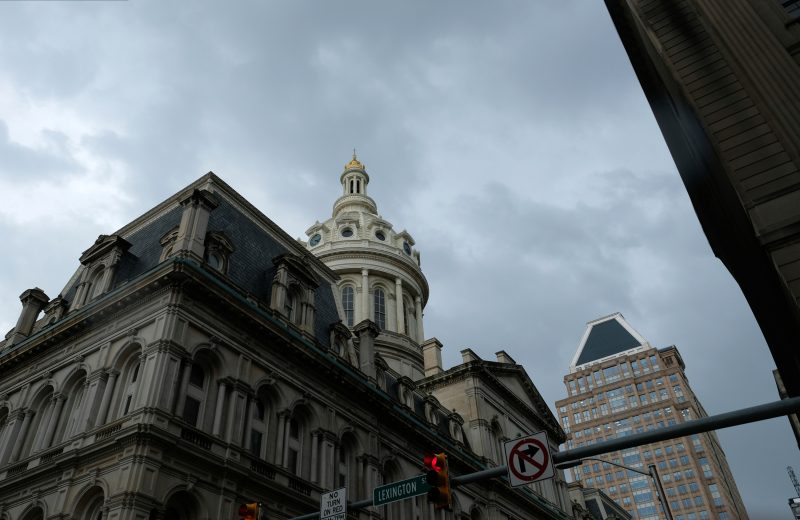Baltimore says it will not pay ransom after cyberattack
Baltimore city hall was targeted in a cyberattack
(Alex Wroblewski)
Washington (AFP) – The US city of Baltimore, a victim this month of a cyberattack that paralyzed part of its computer network, will not pay a ransom to undo the damage, Mayor Bernard Young said Tuesday.
Hackers reportedly had demanded $100,000 in bitcoin, but Young told a news conference “I’m not considering” paying it.
“As a matter of fact, we are going to work with other cities, encouraging them not to pay either,” he said.
Baltimore was the latest big US city, after Atlanta, Georgia and San Antonio, Texas, to be hit with a ransomware attack.
Smaller cities like Greenville, North Carolina and Allentown, Pennsylvania also have been targeted.
The Baltimore attack targeted the Microsoft Windows operating system, blocking city hall’s computer system, online sales and real estate sales.
They used a malware known as “EternalBlue,” developed by the Maryland-headquartered National Security Agency, The New York Times reported Saturday.
Leaked from the NSA, the hacking tool was posted on the internet in April 2017 by “Shadow Brokers,” a hacking group that first surfaced in mid-2016.
– ‘Smart virus’ –
“This was a smart virus,” said Young. “Anytime NSA do something they do it well, I just hope that they had the key so we can all get out of this.”
Since the attack was discovered on May 7, the mayor’s IT team has worked to restore the network with the help of state, federal and private sector experts, Young said.
“We’re making progress on some of the programming piece. We are not there yet,” he said, adding he could not say how long it would take.
He said since NSA was the origin of the malware, the city is seeking federal financial assistance to cover the cost of repairs.
But some experts say other malware known as “Robin Hood” was used in the attack, not “EternalBlue.”
Robert Graham, of the cyber security firm Errata Security, said Microsoft provided its clients with a patch for “EternalBlue” in 2017.
“Going two years without a patch is gross malfeasance that’s hard to lay at the NSA’s feet,” Graham said in a blog post.
Disclaimer: Validity of the above story is for 7 Days from original date of publishing. Source: AFP.


